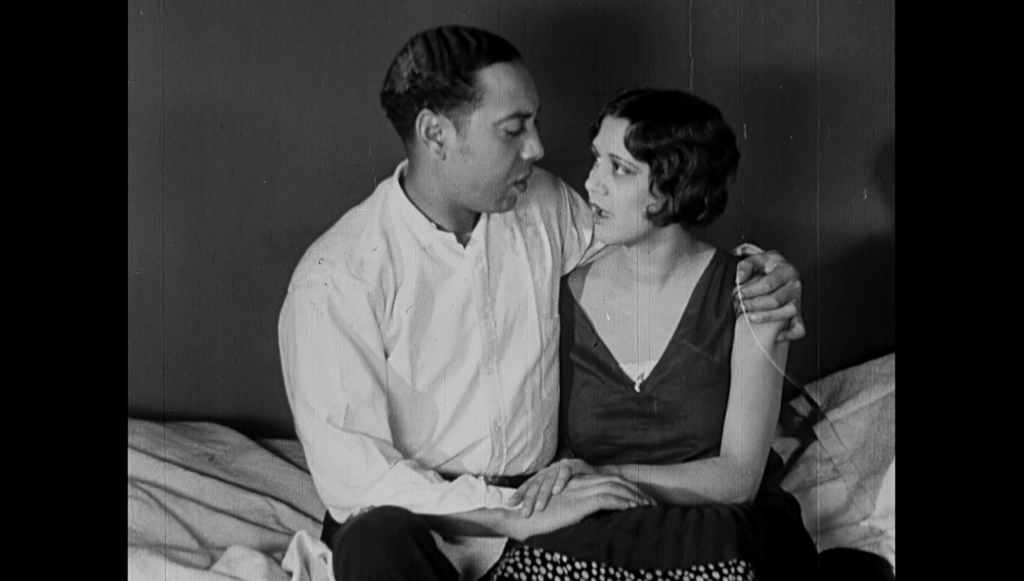With its theme of female debasement, abuse and exploitation, “The Scar of Shame” could have been born of the #MeToo movement. Attacked and browbeaten by her stepfather, a woman finds herself led down a path to perdition. Despite its topicality, however, the work comes from a much earlier era: It’s a silent film, released in 1927, and was considered lost until an original nitrate print was discovered decades later.
“The fact in 2018 that we can look at a film like this and see that many of the social and cultural vagaries still exist … the struggle is virtually the same,” said Chicago-based composer Renèe Baker, who has written a new score for “The Scar of Shame,” which starred an all-black cast and was produced by the independent Colored Players Corp. of Philadelphia. As part of Black History Month, the Chicago Symphony Orchestra’s African American Network will screen “The Scar of Shame,” with Baker’s score, on Feb. 24 in Buntrock Hall.
“The Scar of Shame” is an example of a so-called race film: movies made by black filmmakers with mostly black casts, intended for black audiences. From the dawn of cinema to the 1940s, more than 500 race films were released, with approximately 100 still surviving. “Within Our Gates” (1920) and “Body and Soul” (1924), directed by pioneering black filmmaker Oscar Micheaux, are well-known; others such as “The Scar of Shame,” which respected film scholar Donald Bogle has called “quite possibly the best independent black film of the silent era,” are less so.

Which is where Baker, founder of the Chicago Modern Orchestra Project, comes in. She has written more than 2,000 works, including 100 film scores, which have been performed at venues such as the Music Box, the Museum of Contemporary of Art and Roger Ebert’s Film Festival. Last season, the CSO’s AAN presented Micheaux’s “Body and Soul” with Baker’s score.
For the CSO’s “Scar of Shame” screening, Baker has recorded a new version of her score specifically for the event. “The Scar of Shame” project originated at Indiana University-Bloomington, where Baker had done some research at its Black Film Center/Archive. The archive and IU Cinema then commissioned Baker to compose a score for “The Scar of Shame”; it had its world premiere November 4, with Baker conducting an orchestra of students from IU’s Jacobs School of Music.
Though the November 4 performance was recorded, Baker didn’t have time to master the audio files for the CSO’s screening (which will be a Blu-ray projection). So she decided to compose and record a new version of the commissioned score.
During her research at IU, Baker was drawn to the works of Phil Moore (1917-1987), a jazz pianist-arranger-bandleader and the first black musician hired as a staffer for a major studio (MGM, in 1941). His Suite for Strings (1939) inspired motifs in her “Scar of Shame” score. Baker describes this work as “avant-garde, creative music a la the AACM [the Chicago-based Association for the Advancement of Creative Musicians], with definite classical influences. What I specialize in is accessing the sponge that my brain is. I’ve lived with all of these genres.”
Since its rediscovery in 1969, scholars and cinephiles have embraced “The Scar of Shame,” included in the book The 50 Most Influential Black Films: A Celebration of African-American Talent, Creativity and Determination (2001). It’s also part of “Pioneers in African-American Cinema” (2016), a five-disc set released by Kino Lorber, which remastered titles from the Library of Congress and other film archives.
Baker points out that “Body and Soul,” perhaps her best-known score, is from the same cinematic milieu as “The Scar of Shame.” ” ‘Body and Soul’ is a good movie but ‘The Scar of Shame’ is a brave movie, because it’s so relevant to what’s going on nowadays politically and culturally,” she said. “It’s American history.”
The Chicago Symphony Orchestra’s African American Network will screen “The Scar of Shame,” with Baker’s score, on February 24 in Buntrock Hall. For more information and tickets, click here.











